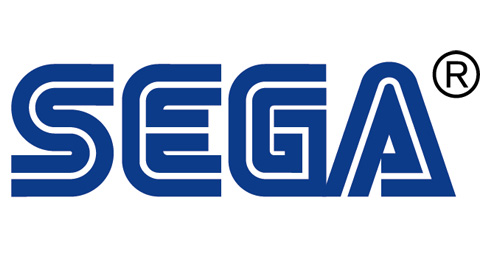With Mipcom taking place currently (and MipJunior just ended), it was no great surprise that last week’s newsfeeds were dominated by announcements about new TV series being commissioned, or perhaps more accurately, existing shows being recommissioned. Amongst the most notable recommissions as far as the licensing community is concerned, Mattel unveiled new series for Thomas & Friends, Fireman Sam and Polly Pocket, while Boat Rocker confirmed that series 3 of Dino Ranch has been greenlit.
However, arguably the biggest news of the week almost slipped under the radar – it has been confirmed that Netflix has finally agreed to work with TV ratings agency BARB, which reports broadcast and streaming numbers. Starting in November, the organisation will measure Netflix’s daily streaming numbers, as well as report on its monthly reach and share of total identified viewing. Netflix also said that shows on its new ad-supported plan in the US will have ratings available from Nielsen in 2023.
The move is a significant departure for Netflix, after previously being rather secretive about its viewer numbers. The publication of independently audited viewing figures will finally allow the streaming platform to be more accurately – and fairly – compared with traditional linear TV channels.
The lack of clarity in Netfix’s numbers has led to claims of unfairness in the past, with rivals suggesting that Netflix’s definition of a viewer potentially included someone who had watched just a few minutes of a programme. Whether true or not, the question marks were always going to remain until the platform allowed its audience figures to be independently verified.
Going public with its viewing figures indicates a sense of confidence from Netflix regarding the quality of its content and, more importantly, its overall audience numbers. While Netflix has previously made its Top 10 rankings public, it has historically kept more detailed metrics closer to its chest, even to the programme makers themselves. Programme creators have sometimes been frustrated, as they were unsure to what extent their shows were being watched, or why they had been cancelled. Indeed, the only way they could determine that their shows were proving popular was when they were commissioned for a new series.
That is all going to change now – and not before time. Anecdotally, the growing influence of the streaming platforms has been abundantly clear in the licensing success of shows and movies such as The Mandalorian and Encanto on Disney +, plus of course Netflix’s Stranger Things and Gabby’s Dollhouse, which has got off to a flying start long before appearing on free-to-air or terrestrial TV stations. Even before this year’s movie, Jurassic World sales increased hugely between 2019 and 2022, when the Netflix series Camp Cretaceous was the only new content being shared with consumers. I think we now have plenty of circumstantial evidence that a programme can succeed without having to be broadcast on free-to-air (although that still gives a nice incremental boost when it happens).
And, of course, both Netflix and Disney+ will soon be introducing advertising options to their channels. This will be both an opportunity and an interesting test of viewers’ preferences; many parents – and their children – have become so accustomed to the ad-free broadcast model that they may well choose to pay extra to keep it that way. Given the current economic challenges, other consumers will almost certainly opt for the lower cost option with additional ads. Either way, SVOD and AVOD are only set to increase their importance to the growth of licensing programmes, so transparency on numbers can only be a good thing.
The other good news from last week was the official confirmation that sales of licensed toys are enjoying a resurgence this year. I attended a special presentation given by the NPD Group in London last week, and whilst I am bound by confidentiality to keep the detailed statistics out of the public domain, I can certainly say that licensing is playing a pivotal role in what is currently proving to be a challenging year for the UK toy market. Licensed toys are up +4% (in a market which is currently down -5% year to date), accounting for 29% of the market – its highest share for many years. It peaked at 27% of the market last year, and it looks like 2022 will see further growth, with many of the retail top toy lists for Christmas featuring a significant percentage of licensed lines.
Of the top 5 gaining properties, four are licensed properties (Jurassic World, DC, Bluey and Star Wars), while the top gaining property – Squishmallows – is entering the licensing market in 2023 in a big way. Jazwares has an absolute winner on its hands with the brand, which has absolutely exploded in the post-pandemic period – and kudos to the company for biding its time before launching a licensing programme on the back of its ongoing success.
As you would imagine, movie-related licences are enjoying a strong year, as consumers return to cinemas in far greater numbers. 2023 looks set to be another huge year for movie merchandise, with numerous licensing-friendly films being released, including Dungeons & Dragons, Super Mario, The Little Mermaid, Spider-Man, Transformers, Barbie, Teenage Mutant Ninja Turtles, The Flash, Paw Patrol, Trolls and Aquaman.
However, an even bigger driver of licensed toy sales in 2022 has been video and digital games. We’ve seen numerous notable success stories come from this area over the past few years (Among Us, Minecraft, Roblox and many more) and having started to preview toy ranges for 2023, I know that we will see even more new launches based on gaming next year. Keep a look out for Bare Butt Boxing, for starters – I’m hearing that early reads on the game are on par with the initial Among Us numbers, which augurs well. And if half the battle is having a memorable name that people will remember and which raises a smile, it certainly has that. Overall, toy sales based on video and digital games in 2022 are double what they were worth in 2019, and I can only see that number increasing over the coming years.











